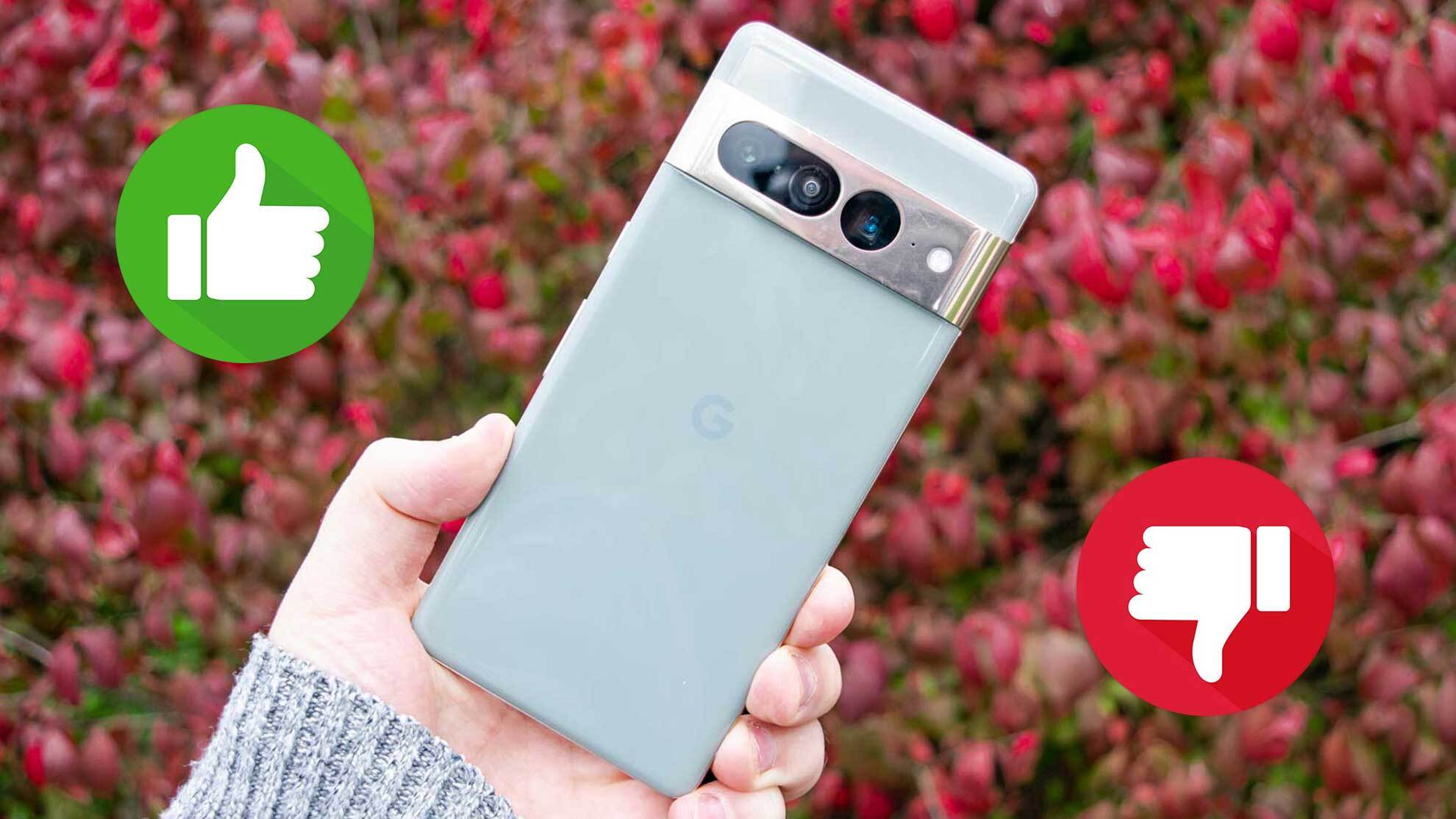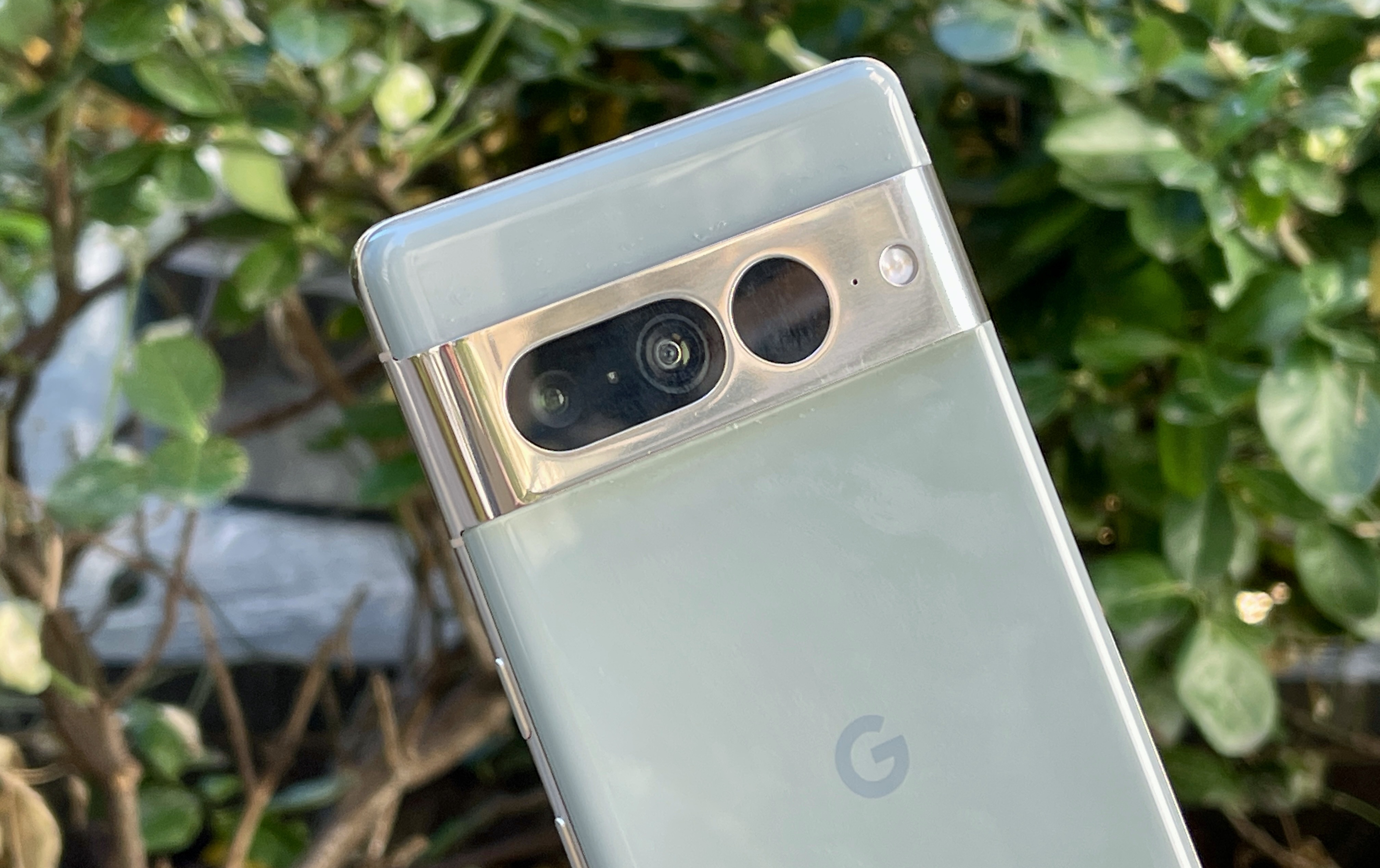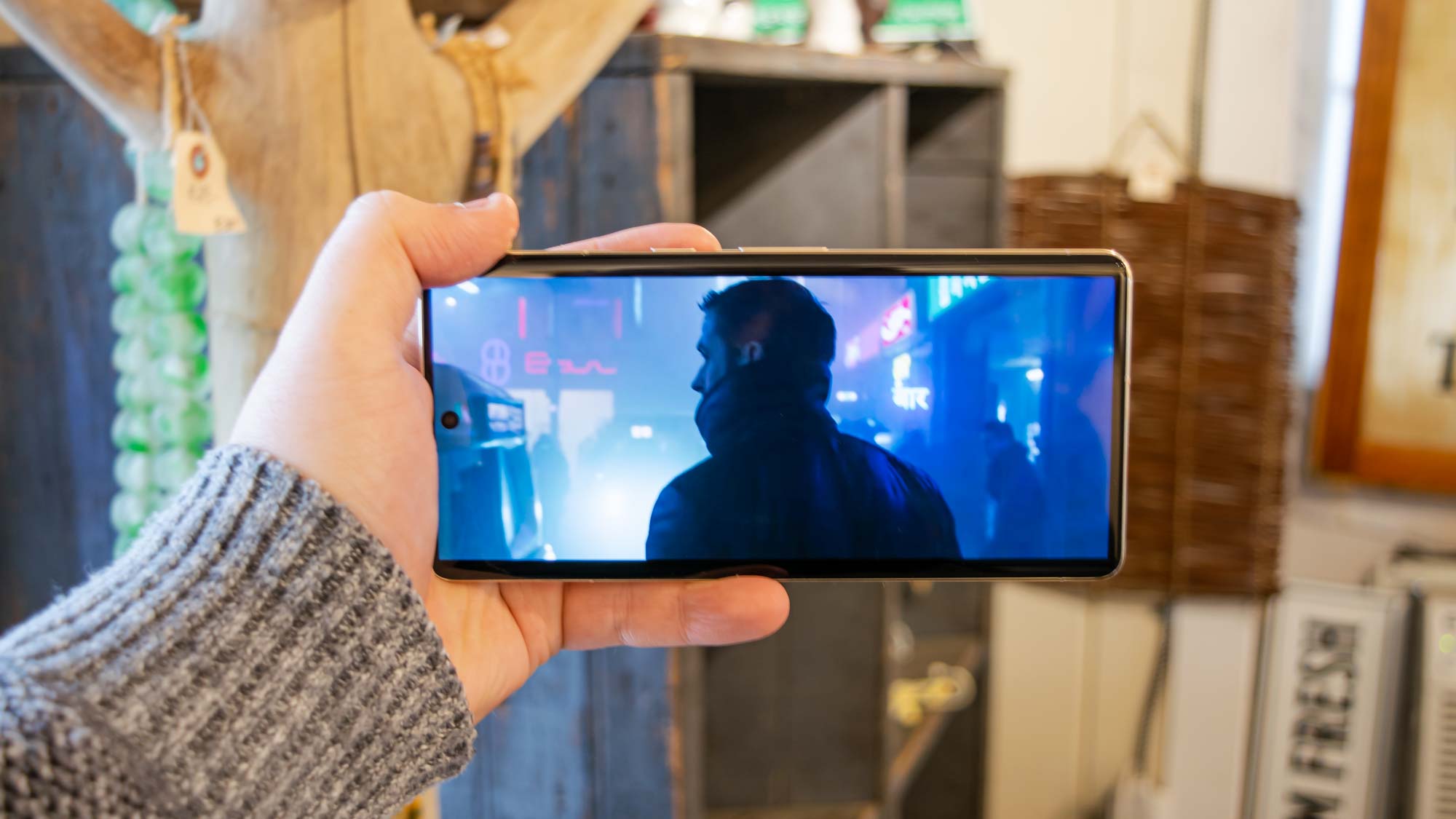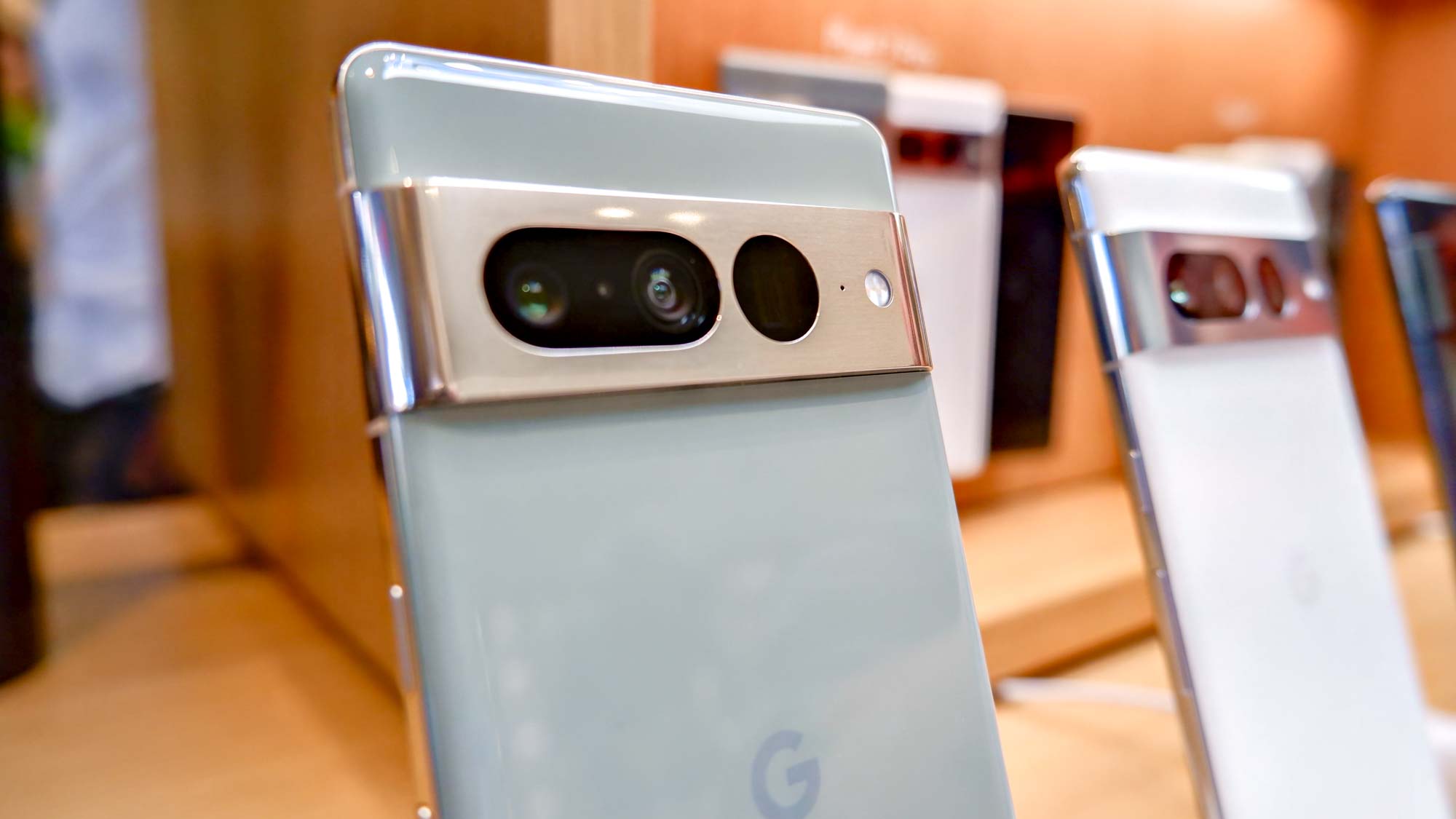Google Pixel 7 Pro — 6 reasons to buy and 3 reasons to skip
These are the Pixel 7 Pro pros and cons

Google has stepped up its game with the new Pixels and has finally given us phones that have made us sit up and take notice — even beyond their camera smarts. The Google Pixel 7 Pro brings many new features and big upgrades from the previous Pixel 6 Pro. It improves on the design language of the Pixel 6 Pro while giving us the power of the second generation Tensor chip and some impressive software features.
In our Pixel 7 Pro review, we mention that the camera itself makes this a great phone. It brings a formidable camera array with a 50MP main camera, a 48MP telephoto lens that has a new “pro level zoom” that magnifies distant subjects and a third ultra wide lens as well.
Google has not widened the gap between the Pixel 7 and Pixel 7 Pro as much as Apple has done this time with its iPhone 14 lineup. Yet, some of the more subtle upgrades like an additional telephoto camera, more battery life, RAM and large display are reserved for the Pro model. It costs $300 more than the Pixel 7, for $899 / £849 / AU$1,299 for 128GB of storage.
I have been using the Pixel 7 Pro for almost three weeks now and have some thoughts on some of the best parts of the phone and some of its weaknesses. Google has moved past pre-orders and the phone is now available to buy. If you’re on the fence about buying yourself a Pixel 7 Pro, here is a quick guide that can help you make that decision.
Reasons to buy the Pixel 7 Pro
Camera capabilities

Google brings the promise of one of the best camera phones each year with its Pixels and this time, the tech giant manages to knock our socks off with its trio of cameras and features on the Pixel 7 Pro. The 50MP lens really showcases the camera prowess of this phone. I clicked some fantastic sunsets where the colors looked striking yet very realistic.
The 48MP telephoto lens has a new 5X optical zoom which lets you focus on subjects really far away with a lot of clarity. The 12MP ultra wide lens is similar to last year’s seen on the Pixel 6 Pro but it now has autofocus in the lens with a field of view of 125.8 degrees and a new Macro Focus mode that turns the camera into a macro lens. (Here’s our guide on how to use the Macro Focus mode).
The magic of computational photography takes the camera hardware to new heights. The Tensor G2 helps bring us faster Night Sight, an improved Super Res Zoom and there is a Face Unblur feature as well. I found that in taking a low light shot, I didn’t have to hold the phone steady for as long while the photo software brightens up the shot.
As for video, the Pixel 7 Pro can record videos in 4K up to 60 fps and has added Cinematic Blur for an artistic blur in videos and Active Stabilization that works well for videos taken on-the-go and gives Apple’s Action Mode a run for its money.
The Pixel 7 also brings some of these features, and while we still have to compare the cameras of the Pixel 7 Pro and the iPhone 14 Pro, our Pixel 7 vs iPhone 14 camera face-off has never been more close.
Impressive telephoto lens
The additional telephoto lens on the Pixel 7 Pro merits its own point in this guide. The 48MP telephoto camera brings a new Super Res Zoom that uses optical performance and leverages the Tensor G2 chip to deliver sharp pictures of far away subjects. It has a 5X optical zoom but when combining optical and digital zoom, the Pixel 7 Pro can reach up to 30X zoom.
Moving beyond 2X though, you will get images at 12.5MP and not 48MP but that does not affect the quality of the image by much.
Tensor G2 features

Google has again brought a bountiful of software driven features courtesy of the Tensor G2 chip that powers the phone. Some of the camera magic like I mentioned above — Super Res Zoom and faster Night Sight are backed by the chip. The new Photo Unblur feature lets you remove blur on any photo and has been so helpful in rectifying the blur on many of my old photos as well. After the Magic Eraser feature from last year, this is another game changer.
Direct My Call that first came on the Pixel 6 has got some upgrades too. The call options appear in text much faster and in just a few taps it can get you to the right person quickly. Tensor G2 also brings the most outstanding speech-to-text functionality.
Audio Typing in Messages supports emojis now and Tensor can now transcribe audio messages as well.
Bright and stunning OLED display

One of my favorite features about the Pixel 7 Pro is its display. You get a large 6.7-inch OLED screen with Quad HD Plus resolution. The gorgeous display is ideal for watching videos and it is super bright as well. It has 1500 nits of peak brightness. I could see the effect of this while I used the phone in daylight where text on the screen was legible at maximum brightness.
It’s not the brightest display in the market but it compares very closely with the Samsung Galaxy S22 Ultra which has a 6.8-inch AMOLED display with 1,750 nits of peak brightness. The iPhone 14 Pro gets slightly ahead here with 2,000 nits.
The 120Hz refresh rate on the Pixel 7 Pro also really makes this a pro-level display, and I enjoyed gaming on the phone.
Premium design

Google has not shaken up the design on the Pixel 7 Pro but this still feels like a very premium phone. If you’re going to be spending $899 on a device, you would like it to be just that as well as durable.
There is a horizontal polished aluminum bar that runs across the back where the cameras are neatly embedded. The new Hazel color is subtle and pleasingm and the phone has gentle and soft corners. I like the ceramic-like silkiness the phone has although it is pretty slippery to use without a cover. The aluminum bar is also prone to scratches without a cover on it.
Overall this is a good looking phone and definitely stands out amongst the best Android phones.
Affordable price tag
Google has not bumped up the price of the Pixel 7 Pro despite all the upgrades this year. The starting price of $899 is decent for a pro-grade phone and when compared to competition like Samsung and Apple, the Pixel 7 Pro offers the most value for money.
The Samsung Galaxy S22 Ultra is priced at $1,199 for 128GB of storage while the iPhone 14 Pro Max comes in at $1,099 for the same amount of storage. The Pixel 7 Pro brings powerful cameras including the telephoto lens, smart features and decent performance that justifies its price tag.
Reasons to skip buying the Pixel 7 Pro
Below average battery life
The main drawback of the Pixel 7 Pro is its below-average battery life. And after making it my daily driver over the last few weeks, it did disappoint me in this aspect.
Google has given the Pixel 7 Pro a 5,000 mAh battery and while that is not an upgrade form the Pixel 6 Pro, I expected that Tensor G2 would assist with power efficiency, improving an area that was also one of our chief complaints with last year’s Pixel.
In our tests the Pixel 7 Pro ran for just 8 hours and 4 minutes on average with adaptive mode turned on. That's far less than the 10:18 turned in by the Galaxy S22 Ultra and 13:39 by the iPhone 14 Pro Max.
In my usage, I found that the Pixel 7 Pro offered okay endurance. I used it for emails, social media and some videos throughout the day and I had some juice left in the evening that let me use Google Maps on my phone to get groceries. I did have to charge the phone after that though or turn on the battery saver mode.
The wired charger does charge the phone pretty fast though. The Pixel 7 Pro supports up to 30W wired, which is better than Apple’s 20W.
Tensor G2 performance doesn’t match up to competition
Google debuted its Tensor chip last year on the Pixel 6 series. While it was a new and powerful chip it fell slightly short of the competition. This time again, the story is not very different with the Tensor G2.
We ran a suite of benchmarks on the Pixel 7 Pro and found that the Tensor G2 trails slightly behind the Snapdragon 8 Gen 1 and Apple’s A16 Bionic chip. While the Tensor G2 is a notable upgrade from the original Tensor it the same amount of power as competing flagships.
Qualcomm is readying the next Snapdragon 8 Gen 2 chip that we might see on phones in 2023, and we’re afraid this might widen the performance gap with the Tensor G2 even further.
Limited software support
Google promises five years of security updates with the Pixel 7 Pro but only three years of software updates for its Pixels. This means that the Pixel 7 Pro will stop at Android 16 in 2025. While three years used to be the Android norm, Samsung raised the bar by offering four years of software updates for its flagship devices like the Galaxy S and Galaxy Z series along with some Galaxy A phones as well.
Considering the Android OS is Google’s own, we wish the company would adjust their software policy to be more generous with updates on the Pixels.
Google Pixel 7 Pro outlook
The Pixel 7 Pro doesn’t reinvent the wheel but it is an excellent phone without being the most expensive one. Like we mention in our review, you will not find a better Android camera phone, and it comes really close to the iPhone 14 Pro as well.
The phone gives the Galaxy S22 Ultra a run for its money. Our Global Editor-in-Chief, Mark Spoonauer, also thinks that after using both phones — he says that the Pixel 7 Pro blows away the Galaxy S22 Ultra and is one of the best Android phones you can buy right now.
I wish Google would improve the battery life on the phone and match Apple with their software updates, but if that doesn’t bother you as much, this is a top phone to get that will offer a lot of bang for your buck.
Sign up to get the BEST of Tom's Guide direct to your inbox.
Get instant access to breaking news, the hottest reviews, great deals and helpful tips.

Sanjana loves all things tech. From the latest phones, to quirky gadgets and the best deals, she's in sync with it all. Based in Atlanta, she is the news editor at Tom's Guide. Previously, she produced India's top technology show for NDTV and has been a tech news reporter on TV. Outside work, you can find her on a tennis court or sipping her favorite latte in instagrammable coffee shops in the city. Her work has appeared on NDTV Gadgets 360 and CNBC.
